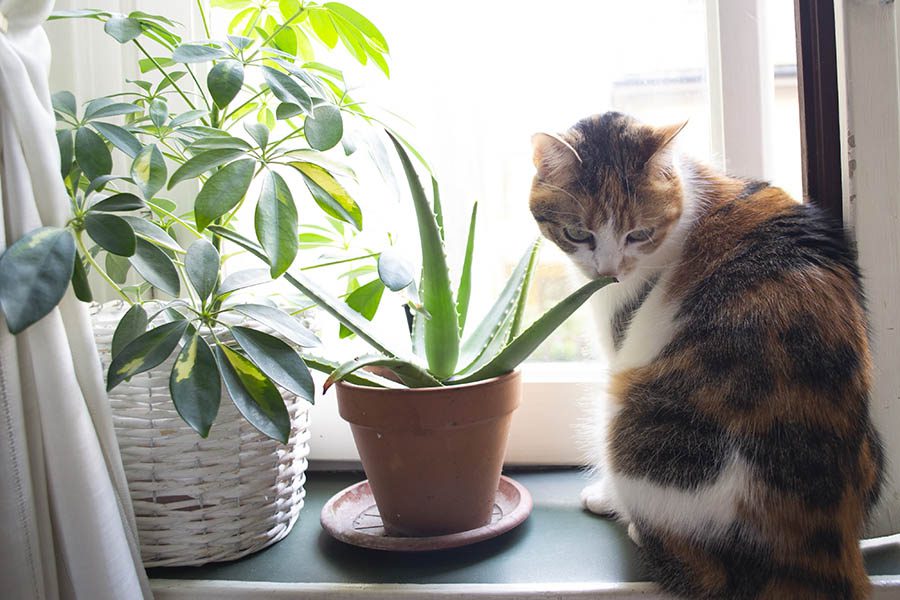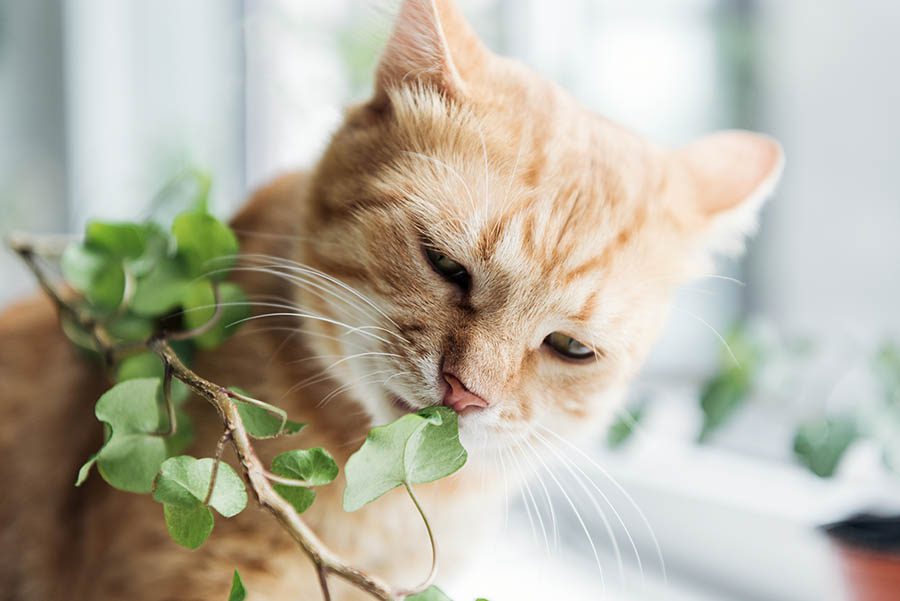When spring is in the air, we all tend to get a little itch (pun intended) to do some gardening. One very popular hobby right now that is trending is the houseplant hobby. The boom in this industry in unknown but could be due to various reasons such as mental and physical wellness, the need to nurture, and feeling connection in a time of a global pandemic. Whatever the reason, the houseplant industry is blossoming (literally) and more and more people are buying them. For pet lovers, this new hobby could need some researching before purchasing. Although as humans we like to reap the benefits of having an indoor garden, we also need to be aware of which houseplants are toxic for our dogs and cats. If you see your pet chewing on these plants or experiencing any of these side effects, see an emergency veterinarian like IndyVet.
Aloe Vera
Aloe Vera, also known as the medicine plant, is a commonly-owned plant amongst plant enthusiasts. The benefits that aloe has on human skin is widely known. This plant contains antioxidant and antibacterial properties and is also known to treat skin and prevent wrinkles. However, although aloe vera has a wide variety of benefits for humans, it has quite the opposite for pets.
Aloe vera contains purgatives. A purgative is a medicine that promotes bowel movement. The purgatives in aloe vera increase mucus and water in the colon which cause diarrhea and vomiting. Do not allow your pet to chew or ingest this plant. If you are a pet lover and own an aloe vera plant, make sure that the plant is out of reach for your furry friends.

Pothos/Devil’s Ivy
Pothos are another popular house plant. It’s a very easy and low maintenance house plant that many people come to love because of its trailing beauty. This exotic-looking plant can cause irritation to your dog or cat’s mouth or tongue. Pothos contain something called oxalate crystals. These crystals do not dissolve and can cut the tissue in your pet’s mouth or throat if they chew or swallow this plant.
Signs of pothos poisoning can be pawing at the mouth, excessive drooling, trouble swallowing and even respiratory distress. In some cases, pothos can even cause liver damage. Be very careful if you own both a pothos and a pet. If you see these symptoms, make sure to see your veterinarian immediately.
Ivy
We know. Ivy is so beautiful as it’s trailing around your home but you need to be cautious of this popular plant. There is a naturally occurring steroid found in ivy that can cause skin issues and even gastrointestinal issues for your pet. The steroid is most commonly found in the leaves of this plant. Watch for signs of any skin irritation and if you know that your pet has ingested this plant, see your veterinarian.
Lilies
Another common houseplant is the lily. While there are a wide variety of lilies on the market, they’re all toxic to your furry family members, cats especially. Lilies can unfortunately be lethally toxic for our felines. Lilies naturally produce a chemical that can cause kidney failure in cats. In fact, the chemical is so toxic that your cat can be in danger if they bite or even lick a lily. Although this particular houseplant is known to be highly toxic for cats, it can also cause stomach and digestive issues for dogs. Symptoms of lily positioning in cats can happen within the first 12 hours of digestion. Be sure to watch for loss an appetite, drooling, vomiting and lethargy. Signs of kidney failure can begin within the first 24 hours of contact.
Houseplants can definitely serve as a relaxing hobby to most, however make sure that you do your research before bringing a plant into a home with a pet. The plants listed in this article are just a few of many houseplants that can potentially cause harm to your cat or dog. As mentioned above, if you do see your pet chewing on these plants or displaying any signs of houseplant poisoning, be sure to contact your emergency vet right away.

